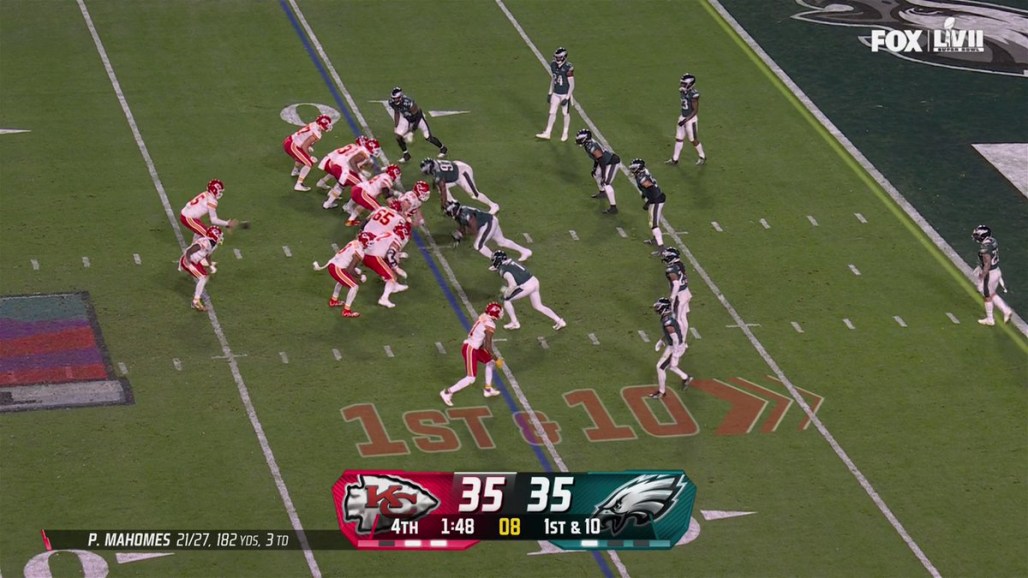Out of Character
Stats don't understand clubhouse chemistry. Neither do the Browns
Content warning: Sexual violence and abuse
The NFL kicks off in a few weeks, and the party line in Cleveland is optimism for Deshaun Watson’s first full season with the Browns. Watson’s initial introduction to the Browns’ clubhouse and offensive scheme was complicated by what he blithely called a “distraction” — meaning he spent last summer fighting dozens of accusations of sexual misconduct. “I’m in a different space [now],” he reassured reporters a couple weeks ago. “I've been able to open the whole playbook.” Head Coach Kevin Stefanski agreed, gushing about the preparation he’s seen from a player who was suspended for most of 2022 and performed conspicuously poorly upon his return. Stefanski went on to effuse about “how committed he is to the team” that picked Watson up last spring at the increasingly ill-advised cost of three first-round picks, $230 million, and the organization’s soul.
The easiest and most-important lens for critiquing the Browns’ acquisition of Watson is the moral one. At least 30 different women have credibly accused Watson of inappropriate behavior, including multiple allegations of sexual assault. Reasonable people can disagree about how professional sports leagues should handle players who commit such acts, and whether assailants can ever be trusted again. But when you anoint a man whose accusers number in the dozens as the face of your franchise and structure his immediate record-breaking contract extension to minimize the financial penalties from his forthcoming suspension…well, it’s safe to infer something about your organization’s values.1
Nor has the trade worked out on pure football merits so far. As should have been obvious from the start, there was a fundamental tension between the Browns’ insistence that they needed a better quarterback to win in 2022 and their putting three years’ worth of draft capital towards a player facing an immediate suspension. Given the Browns’ roster situation, last year should have been their best chance for a Super Bowl for the foreseeable future. Yet they punted on the 2022 season by going all-in on a guy who was sidelined for more than half the year (and was speculated to be facing an even longer punishment at the time). Yes, Watson is under contract for four more seasons, but the task gets harder with each passing year as the skill-position core ages, the salary-cap bills come due, and the lost draft picks hinder the organization’s ability to add young talent. Not to mention that, unsurprisingly, Watson no longer looked like the player he once was after a nearly two-year hiatus from football. It’s as if the team brass were so focused on rationalizing their moral compromise that they forgot to consider whether acquiring Watson made the team better.
Furthermore, Watson’s recent quotes hint at yet another angle through which to view the team’s poor judgment, one that may be the key to understanding how the Browns have managed only one winning record in four post-rebuilding seasons with a championship-caliber core: Even casting morality aside, the organization doesn’t seem to know how to evaluate personal character.
True to their name, intangibles are perhaps the hardest things in sports to grasp from the outside. Coaches and commentators frequently reduce the mental side of the game to clichés: playing hard, toughing it out, fighting for every inch. Popular narratives attribute winning streaks to jovial clubhouses instead of the other way around. The predominance of such lazy analysis begat an overcorrection among statistics-minded writers, who too frequently mistook the impact of clubhouse chemistry as not merely exaggerated but insignificant. As with many sports labor issues, it’s clarifying to consider how these ideas apply to other workplaces. When you need someone to fix your sink, you care more about their plumbing expertise than whether you have common interests. On the other hand, anyone who’s ever had a job understands that having good working relationships with your colleagues makes a real difference in your own productivity.
My professional experience comes from baseball, the most-solitary of the team sports. Aside from the pitcher and catcher, no given pairing of teammates will cooperate on a play more than a few times per game. Football is a different beast. Each of the 11 players on the field moves in concert with the others. The quarterback must have confidence in the linemen to protect him; the receivers have to anticipate where the ball will be thrown even as the quarterback obscures their intentions. It’s hard to imagine how such a group could function well without some kind of communal bond.
I wasn’t sure how to best define these famously vague notions. So I called Geoff Miller, a longtime mental skills coach who now runs his own consultancy for athletes and executives. “The key to any team working effectively together is trust,” Miller told me. “Leaders need to build it and maintain it, but it’s a very basic and simple concept. And as intangible as it might be, it’s also easy for most people to determine with a yes or no answer on whether they can trust a teammate or not.”
A crucial nuance here is that being a good person is not necessarily the same as having strong character in the athletic context. You can be a kind person but lack the competitive fire to lead a locker room, or fail to strike a healthy balance between self-belief and arrogance — what Miller calls “genuine confidence.” The corollary, which is uncomfortable to put into words but is nonetheless a fact of the world in which we live both including and outside of sports, is that there are amoral people who are admired for their character. Infamous bigot and Nazi memorabilia collector Curt Schilling was once renowned as a positive influence off the field. Miguel Cabrera and José Reyes each retained a reputation as a veteran leader after an incident of domestic violence. It’s probably not a coincidence that the closest thing Major League Baseball has to a modern-day persona non grata, Trevor Bauer, was already known as an obnoxious teammate before the more-serious allegations against him surfaced.
You may not like the fact that an athlete’s clubhouse reputation is divorced from their moral character — I certainly don’t — but critiquing the Browns on their own terms means understanding their perspective. It also clarifies yet another way in which the organization misjudged Watson.
Watson’s introductory press conference was perhaps the most-defensive presentation of a new franchise player in sports history. For forty minutes, Watson, Stefanski, and General Manager Andrew Berry made their case to a justifiably skeptical audience. When they weren’t busy dodging questions about the specific allegations, Berry and Stefanski repeatedly emphasized the lengths the organization had gone to to get to know “Deshaun the person” (a phrase they used seven different times) before the trade.
Here’s an excerpt from Berry’s opening statement: (emphasis mine)
It was because of the weight of the anticipated reaction and the nature of the allegations that really pushed us to do as much work as possible, both internally and externally, in terms of understanding the cases and who Deshaun was as a person. It was through this really five-month odyssey and information that we were able to amass and the reference work, and obviously working through due process and the legal process, that got us comfortable pursuing the trade for Deshaun. … We do think that there is a strong and detailed body of work about Deshaun and we do have faith in him as a person. We are not naive to the fact that there is still work to do — I think Deshaun will be the first to tell you — as we integrate him into our organization and the Cleveland community, but we do have faith that Deshaun will not only meet the expectations that we have of any player who we bring into the organization but exceed them.
A written statement from the team a few days earlier went further in describing the “comprehensive evaluation process” they undertook: (emphasis again mine)
It was pivotal that we [Dee and Jimmy Haslam], along with Andrew Berry and Kevin Stefanski, meet with Deshaun to have a straightforward dialogue, discuss our priorities, and hear directly from him on how he wants to approach his career on and off the field. He was humble, sincere, and candid. In our conversations, Deshaun detailed his commitment to leading our team; he understands and embraces the hard work needed to build his name both in the community and on the field.
Humble. Sincere. Candid. These are not your standard tough-guy buzzwords. These are specific, falsifiable claims purportedly based on months of extensive background-checking. In justifying their pursuit of Watson, they made the intangibles they were looking for tangible. Which means we can assess how accurate their judgment was.
Let’s start with candid. Watson continues to deny any wrongdoing amidst the myriad sexual-assault and -harassment allegations he faces. This is transparently bullshit. Forget the disturbing corroborating evidence, the fact that even the NFL’s strangely limited and “victim-blaming” investigation was fruitful enough to justify a suspension from the league, and the inherent misogyny in the reflex to doubt such accusations. It’s 30 people’s word against his! There is no one without a vested interest in condoning Watson or a broad axe to grind with “cancel culture” who actually believes him. How could anyone attribute candor to a man who keeps repeating an obvious lie?
Which brings us to sincere. This claim was contradicted within minutes of Watson’s introduction to the Cleveland media. He explained at that fateful press conference that he would never cross boundaries with a woman because he was raised by his mother and aunts. In my experience, I don’t find “I have Jewish friends” to be a convincing defense from an alleged anti-Semite, to say nothing of the fact that most sex offenders indeed have mothers. He dismissed a question about seeking counseling “because I do not have a problem,” so we know how seriously he must have taken the behavioral-therapy portion of his reinstatement requirements. He insisted that he had no regrets — until a few months later, when after much consideration he offered one of the most shamelessly disingenuous apologies I’ve ever heard. If anyone reading this trusts Watson’s sincerity, I have an exciting investment opportunity in the Brooklyn Bridge that I’d love to tell you about.
Finally, the organization claimed Watson was humble. This is a thornier subject, as athletes of color are disproportionately likely to be accused of having egos. The difference between being perceived as arrogant versus confident or aloof instead of reserved can be arbitrary at best and a dog whistle at worst. Under these circumstances, I would expect a bare-minimum manifestation of humility to include having the grace, or at least the awareness, not to center his own twisted feelings of victimization. Yet Watson has consistently treated the scandal like a chip on his shoulder. An obstacle for him to overcome. As recently as two weeks ago, he was asked how the suspension changed him. “I just had to lock in on myself,” Watson said. “Just really [know] who’s going to be there and support me even when I’m at my lowest point.” He went on to complain that “the media … overshadowed” his own story. These are not merely the words of someone who’s not humble enough to acknowledge his wrongdoing. They betray a complete lack of awareness that anyone else around him matters at all.
Both on and off the field, the Watson who showed up in Cleveland has been nothing like the man the team promised. Berry, Stefanski and their staffs allegedly spent five months intensively vetting his character. How did they still get him so wrong?
Paul DePodesta’s tenure has been a tough stretch for Cleveland fans. I’m not just talking about the Browns’ 1-31 record in DePodesta’s first two years as the Browns’ Chief Strategy Officer, but what happened after the strip-it-to-the-studs rebuild ended. Heading into 2019, the Browns appeared poised for their first winning season in over a decade. They had number-one pick Baker Mayfield under center coming off a great rookie year, they added stars Odell Beckham Jr. and Kareem Hunt (presaging the franchise’s moral compromise with Watson), and they hired Freddie Kitchens as head coach specifically because of his chemistry with Mayfield. That all amounted to a 6-10 finish. The Browns saw another promising roster fizzle out in 2021, when they went 8-9. Then they shot themselves in the foot for 2022, cashing in all their chips for a player they knew was facing a lengthy suspension and ending up at 7-10.
This coming year is the fifth in the post-rebuilding era in which the Browns have fancied themselves legitimate championship contenders. With the exception of 2020, when they were knocked out in the second round of the playoffs (though I genuinely believe that a single blown call cost them a run to the Super Bowl), those lofty expectations have somehow yet to translate into even a single above-.500 season.
The Watson debacle may be the key to understanding the franchise’s repeated failures. Do the Browns’ leaders simply lack the people skills required to assemble a winning clubhouse?
This is not mere Monday-morning quarterbacking. Locker room issues have been a constant theme of recent Browns seasons. Mayfield’s brash persona, once part of his charm, wore thin as he struggled through an injury-plagued 2021 season. He became a plausible scapegoat for the Browns’ clubhouse dysfunction. Yet the issues persisted after his departure. At the end of last year, Jadeveon Clowney was dismissed from the team after complaining in an interview that the coaching staff “got their own guys, and I ain’t one of them” — a remark that paints a damning portrait of player morale whether you believe him or not. Then there’s Beckham. The enigmatic star’s rocky tenure in Cleveland ended ignominiously partway through the 2021 season after his dad called Mayfield out on social media. Perhaps the only thing more embarrassing than releasing a marquee player in the middle of the season due to clubhouse discord is that the Browns considered bringing him back barely a year later.
Ascribing a team’s success or failure to the state of its locker room is usually facile. When it comes to a franchise that believes Deshaun Watson is “humble, sincere, and candid,” perhaps the notion has some merit.
Who is to blame for the organization’s failure to understand culture? As GM, Berry has been the public face of the Browns’ personnel decisions and presented himself as overseeing the team’s background work on Watson.2 Yet DePodesta seems to outrank Berry, and it’s hard to imagine him not having major influence over roster moves. He has also had more time to shape the team, as he has been in a decision-making role for seven years compared to Berry’s three. Then there are the Haslams, who are not exactly known for staying out of the way of their Football Operations group. So long as they own the team, we on the outside will never know how much autonomy the ostensible decision-makers really have.
The name I keep coming back to is Stefanski. Most of the football-smart Browns fans I know remain Stefanski stans, praising the aggressive playcalling and data-driven approach to in-game decisions that led the Browns to their first playoff win in my living memory in his first year with the team. But the clubhouse is his domain, and under his watch the locker room has been as messy as the team plane. He may not have as much say in personnel moves as Berry and DePodesta, but NFL head coaches are more involved in roster-building than their counterparts in most other sports, presumably especially in terms of assessing how a player will fit in the clubhouse. And while it’s fair to note that Stefanski inherited Beckham and Mayfield in his locker room, that doesn’t help his case — that they became major problems only after he took over is a pock on his tenure. We take for granted that a head coach knows how to both read and lead their team. Tactical genius or not, if Stefanski can’t foster a cooperative environment and effectively represent the clubhouse to the front office, he may not be fit for the job.
Wherever the buck stops, it’s easy to imagine the Browns’ braintrust looking at the factory of sadness that is the locker room and assuring themselves like Principal Skinner: No, it’s the players who are wrong. But who keeps signing these players?
By the end of last summer, Jimmy Haslam was taking a different tack. “Is he never supposed to play again?” he asked impatiently after Watson’s suspension was announced. “Is he never supposed to be a part of society? Does he get no chance to rehabilitate himself?” Haslam’s words oozed with the familiar feigned outrage that follows whenever a celebrity is held to account for their actions, from his unwarrantedly defensive tone to his demanding a “second chance” (a phrase he used five times in under a minute) for someone who insists he hasn’t used up his first one. He even said the quiet part loud (and contradicted Berry’s earlier insistence otherwise) in admitting that the team was willing to rehabilitate his image “because he’s a star quarterback. Well of course!”
Maybe by then Haslam was surprised that the fans’ frustration with the trade had not yet abated. Maybe he is so used to getting his way that he interprets disagreement as impudence. Or maybe he simply realized that no one was buying his “humble, sincere, and candid” line anymore.
The Browns are in a sorry state. Even the most-ardent process-trusters have realized that the team did not emerge from its cutthroat rebuild as the enlightened juggernaut of football operations that DePodesta’s hiring was supposed to herald. The moral depravity it took to acquire Deshaun Watson was apparent to anyone with principles. And of course we are talking about the Cleveland Browns, a franchise so futile that other fanbases pity us too much to talk trash. But their apparent inability to comprehend personal character and clubhouse dynamics presents another distinct and disturbing layer of organizational failure. Cleveland fans are used to waiting ‘til next year. If the Browns can’t understand the basic human elements of putting together a team, we’ll be out in the cold for a whole lot longer than that.
If you care more about pointing out that such a contract structure is common for salary-cap purposes than the optics of helping Watson circumvent his punishment, please reconsider your priorities.
Hearing management reveal how little they knew about Watson’s character can’t have helped clubhouse morale, either.








Another solid contribution!